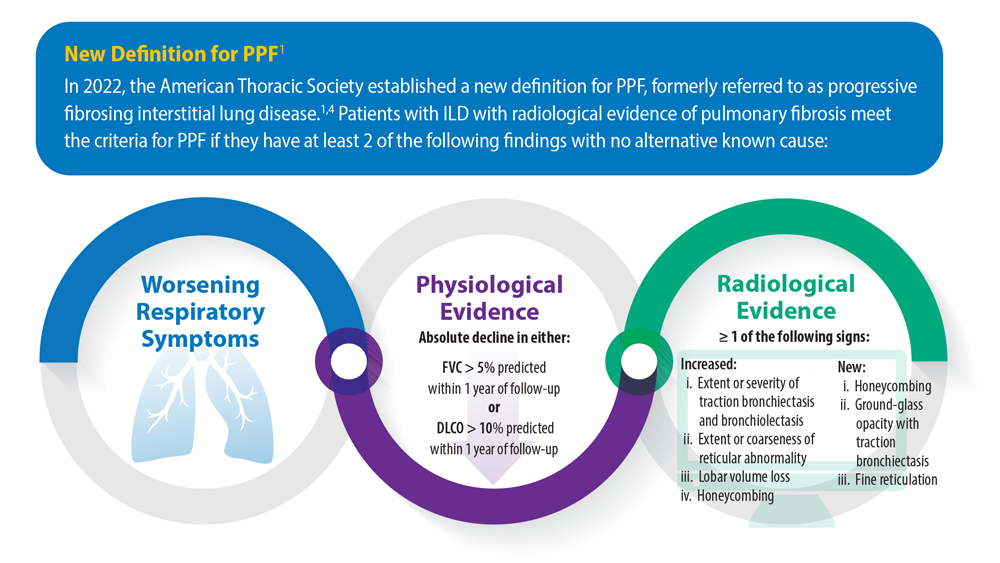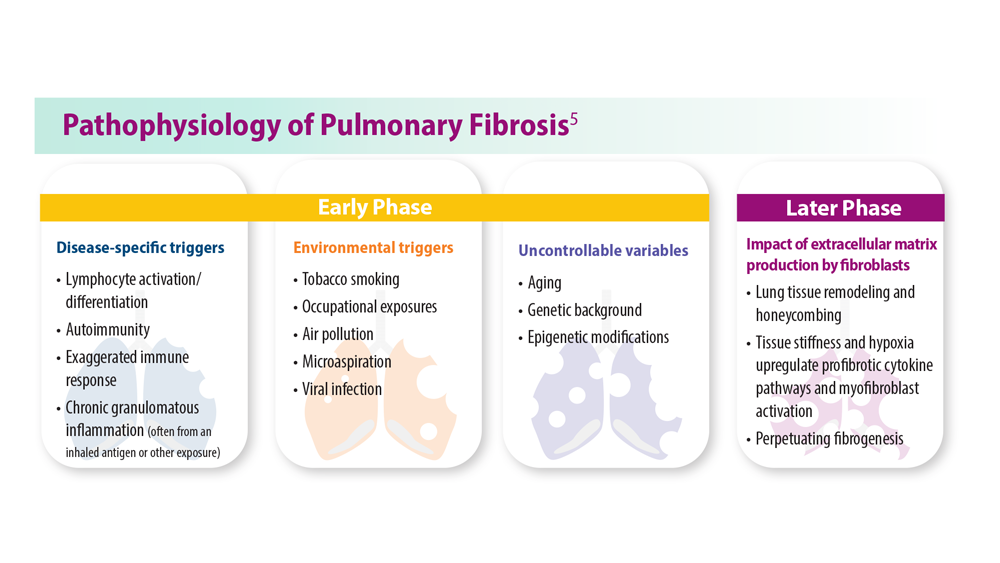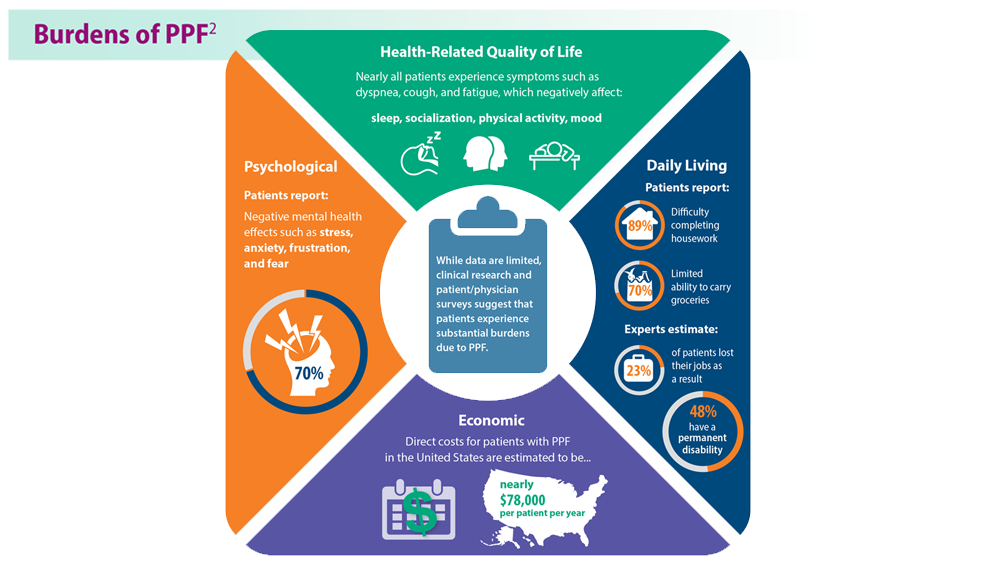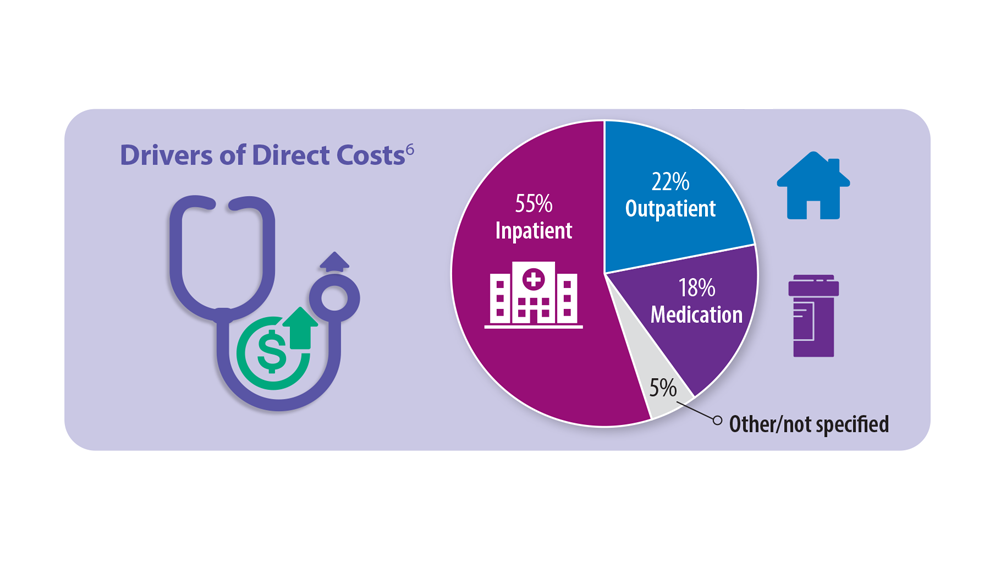Progressive Pulmonary Fibrosis: Understanding Its Many Forms
Tejaswini Kulkarni, MD, MPH, FCCP
Associate Professor of Medicine
Director, Interstitial Lung Disease Program
Division of Pulmonary, Allergy and Critical Care Medicine
The University of Alabama at Birmingham
Birmingham, AL

Slideshow below.
The updated idiopathic pulmonary fibrosis guideline from the American Thoracic Society, European Respiratory Society, Japanese Respiratory Society, and Asociación Latinoamericana de Tórax was based on multiple clinical trials and includes many different disease manifestations. The intention of the update is to more accurately monitor disease progression to help inform therapeutic decisions for our patients.1 ILDs most likely to develop a progressive phenotype include idiopathic, nonspecific interstitial pneumonia; unclassifiable ILD; fibrotic hypersensitivity pneumonitis; and ILDs associated with autoimmune disorders.2 Management of progressive pulmonary fibrosis (PPF) is far from a “one size fits all” approach. Many variables need to be better understood, such as how different disease etiologies progress, the role of comorbidities, and the best timing and sequence of therapy including escalation in immunosuppression and/or antifibrotic agents for different patient profiles.1,3
1
-

DLCO, diffusing capacity for carbon monoxide; FVC, forced vital capacity
-

-

-

In general, the overall prognosis and implication of PPF offer insight into early phase and later phase variables that are critical when defining the comprehensive burdens, which impact not only direct costs but also the specific approach clinicians take in treating this disease.
